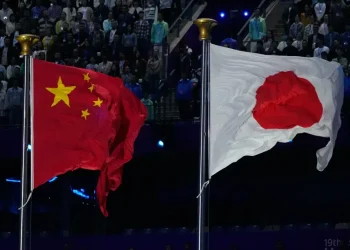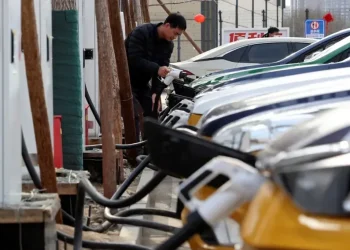Discontent Surges as President Ruto Faces Growing Public Outrage
President William Ruto is facing mounting public anger in Kenya, as citizens protest broken campaign promises, worsening corruption, and deadly crackdowns on dissent. Less than three years into his term, thousands of Kenyans have taken to the streets, with many vowing to make him a “one-term” president.
Demonstrators chant “WANTAM” — shorthand for “one-term” — while holding signs and raising single fingers in protest. The message is clear: they want Ruto out, and many say 2027 is too far away.
A Presidency in Crisis: From Hope to Hostility
Once hailed as a champion of Kenya’s working class, Ruto now finds himself widely unpopular after introducing aggressive tax hikes and slashing fuel subsidies — moves critics say betray the very people who helped elect him.
His justification? The government needs the revenue to stay afloat. But for many Kenyans, that explanation doesn’t hold water.
“He has control of the institutions, but he doesn’t have control of the people,” said Karuti Kanyinga, a professor of development studies at the University of Nairobi. “Ruto is probably the most hated man in Kenya right now.”
Protests Reignite After Blogger’s Death in Custody
A new wave of unrest erupted following the death of a political blogger while in police custody — a flashpoint seen by many as evidence of rising authoritarianism and unchecked power under Ruto’s rule.
The outcry follows last year’s deadly anti-tax demonstrations, during which at least 22 people were killed and protesters stormed Kenya’s parliament building. Ruto vowed such chaos would not happen again — but critics say nothing has changed.
“They’re not feeling heard,” said Meron Elias, an analyst with the International Crisis Group. “There’s grief and bitterness from last year that is feeding into current tensions.”
Corruption, Nepotism, and Broken Trust
Protesters accuse the Ruto administration of rampant corruption and self-enrichment. Nicknamed “Zakayo,” a nod to the biblical tax collector Zacchaeus, and branded a “mwizi” (thief in Kiswahili), Ruto has become a symbol of elite excess.
One flashpoint was a now-canceled $2 billion deal that would have handed control of Kenya’s main airport to India’s Adani Group. News of the agreement, leaked after police violently suppressed anti-tax protests, fueled suspicions that Ruto was governing behind closed doors — and for private interests.
IMF Pressure, Debt Talks, and Unpopular Reforms
Ruto continues to push for an expanded tax base and negotiate fresh loans with the International Monetary Fund. But many argue these reforms hurt the poor while protecting political elites.
Last year, Ruto told Harvard Business School students he wouldn’t preside over “a bankrupt country.” But back home, his critics say he’s doing just that — while making life harder for ordinary Kenyans.
“I didn’t expect the government to address corruption or nepotism,” said 21-year-old student Peter Kairu. “Until we ourselves become the change, nothing will happen.”
Crackdowns and Fear of Retaliation
Ruto’s rhetoric has also drawn concern. After a large anti-government protest marked the anniversary of the 2023 tax protests, he warned that if there is “no country for William Ruto, there’s no country for you.”
The comment alarmed many, including unemployed Nairobi resident Eileen Muga, who said citizens fear being “disappeared” for criticizing the government.
Interior Minister Kipchumba Murkomen added to the tension by threatening harsh action against demonstrators.
Political Power Plays and Fractured Alliances
Ruto’s rise to power was built on savvy political maneuvering. As deputy president under Uhuru Kenyatta, he clashed with his boss before winning the 2022 election in a narrow victory over Raila Odinga.
Since then, Ruto has pulled Odinga into his orbit while distancing himself from Deputy President Rigathi Gachagua, who was impeached last October by Ruto-aligned lawmakers — despite Ruto publicly denying involvement.
Analysts say the move signals Ruto’s intolerance for dissent, mirroring the very tactics he once decried.
‘Hustler Nation’ No More?
Ruto campaigned as the face of the “hustler nation,” a movement aimed at uplifting Kenya’s informal economy. His populist platform appealed to street vendors, boda boda riders, and market workers. His evangelical alignment and Bible-clutching campaign style resonated with Kenya’s Christian majority.
But post-election, the president quickly pivoted to austerity: removing subsidies, introducing steep taxes, and defending painful reforms as necessary to stabilize the economy.
“It’s a case of overpromising and underdelivering,” said government policy analyst Eric Nakhurenya. “That’s why Kenyans are angry.”
Looking Ahead: Tension Builds Ahead of 2027
Ruto may be constitutionally safe until the next election, but unrest is unlikely to fade. Many Kenyans say the stakes go beyond one presidency — they’re fighting for accountability, transparency, and reform in a system they feel has long ignored them.
Whether Ruto can regain public trust — or merely survive the political storm — remains to be seen.
This article was rewritten by JournosNews.com based on verified reporting from trusted sources. The content has been independently reviewed, fact-checked, and edited for accuracy, neutrality, tone, and global readability in accordance with Google News and AdSense standards.
All opinions, quotes, or statements from contributors, experts, or sourced organizations do not necessarily reflect the views of JournosNews.com. JournosNews.com maintains full editorial independence from any external funders, sponsors, or organizations.
Stay informed with JournosNews.com — your trusted source for verified global reporting and in-depth analysis. Follow us on Google News, BlueSky, and X for real-time updates.














